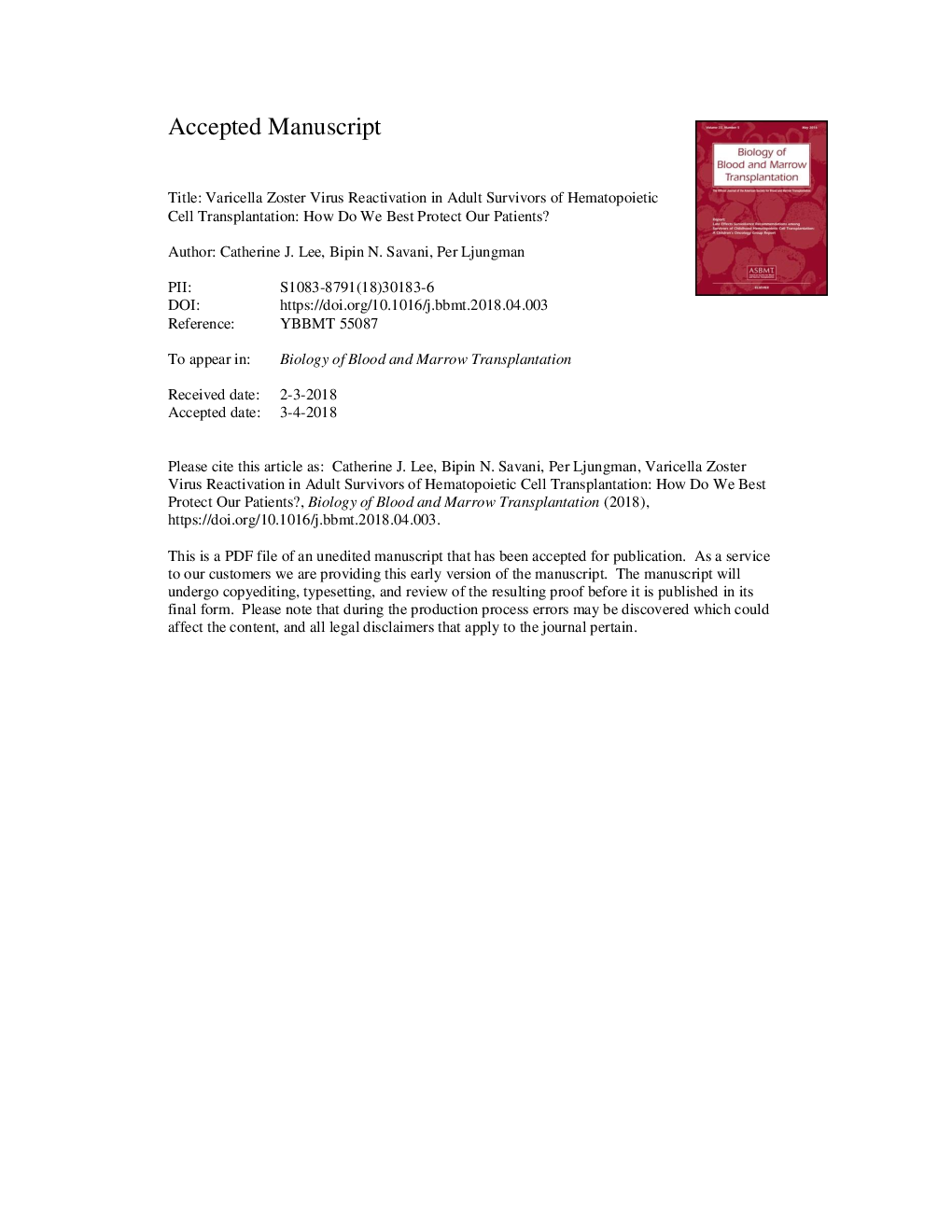| Article ID | Journal | Published Year | Pages | File Type |
|---|---|---|---|---|
| 10157446 | Biology of Blood and Marrow Transplantation | 2018 | 17 Pages |
Abstract
Reactivation of varicella zoster virus (VZV) remains a significant public health burden for long-term survivors of hematopoietic cell transplantation. Delayed immune reconstitution after transplantation due to immunosuppression, post-transplant therapies, poor engraftment, and graft-versus-host disease leave a large number of patients at risk for herpes zoster (shingles) and its highly morbid complications. Although prophylaxis with acyclovir or valacyclovir has reduced the incidence of VZV reactivation as long as prophylaxis is continued, the incidence of disease in the late post-transplant period or after stopping prophylaxis is greater in the hematopoietic cell transplantation population than the general public. Therefore, additional interventions beyond long-term use of prophylactic antivirals are required to suppress VZV. Vaccines to elicit VZV-specific immunity represent one method to enhance prevention of VZV reactivation, but care must be taken with live vaccines. Inactivated vaccines have been developed and require well-designed studies to determine their safety and efficacy in this high-risk population. Here, we report the available evidence for established and newly developed vaccines for VZV and discuss our view on their role in protecting our transplant survivors against VZV reactivation.
Related Topics
Life Sciences
Biochemistry, Genetics and Molecular Biology
Cancer Research
Authors
Catherine J. Lee, Bipin N. Savani, Per Ljungman,
